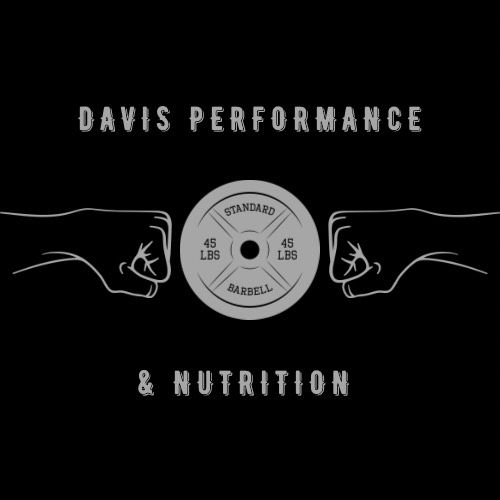Strength and Conditioning Blog of Blogs

How Does Proper Nutrition Enhance Men's Health?
"The food you eat can be either the safest and most powerful form of medicine or the slowest form of poison." - Ann Wigmore
Introduction:
The importance of proper nutrition for men's health cannot be overstated. A well-balanced diet rich in important nutrients such as protein, vitamins, minerals, and fiber plays a crucial role in maintaining overall well-being and preventing various health conditions. Men who prioritize their nutrition are less likely to develop heart disease, diabetes, obesity, and other chronic illnesses. Additionally, a healthy diet can boost energy levels, improve mental clarity and focus, and enhance athletic performance. By understanding the impact of nutrition on men's health, individuals can take proactive steps towards achieving optimal well-being.
Key Takeaways:
Healthy Diet: Proper nutrition plays a crucial role in enhancing men's health by providing necessary nutrients, vitamins, and minerals necessary for optimal bodily functions.
Disease Prevention: A balanced diet rich in fruits, vegetables, whole grains, and lean proteins can help reduce the risk of chronic diseases such as heart disease, diabetes, and certain cancers.
Improved Energy Levels: Eating nutritious foods can boost energy levels, enhance athletic performance, and support overall well-being, making it important for men to prioritize their nutritional needs.
Fundamentals of Proper Nutrition
Macronutrients and Their Role
Role Even the most meticulously crafted workout routine can only go so far without the right fuel. Macronutrients, consisting of carbohydrates, proteins, and fats, are necessary for men's health. Carbohydrates provide the necessary energy for daily activities and workout sessions, while proteins are crucial for muscle repair and growth. Fats play a key role in hormone production and nutrient absorption.
Vitamins and Minerals Essential for Men
For optimal health, men need to ensure they consume a variety of vitamins and minerals. These necessary nutrients play vital roles in various bodily functions, including immune system support, bone health, and energy production. It is important to highlight the significance of vitamins such as vitamin D for bone strength and immune function, as well as minerals like zinc for testosterone production and antioxidant activity.

Foods to Include and Avoid
Optimal men's health can be achieved by including foods rich in necessary nutrients while avoiding those high in unhealthy fats, sugars, and sodium. Including a variety of colorful fruits and vegetables, lean proteins like fish and poultry, whole grains, and nuts can provide the necessary nutrients for optimal health. Conversely, limiting processed foods, sugary beverages, red meats, and foods high in trans fats can help reduce the risk of chronic diseases and support overall wellbeing.
Understanding the importance of choosing nutrient-dense foods over processed and unhealthy options is key to improving men's health and reducing the risk of lifestyle-related diseases. Making informed choices about what to include and avoid in their diets can have a significant impact on men's overall health and longevity.
Impact of Nutrition on Men's Physical Health
Nutrition and Muscle Development
Not only does proper nutrition play a crucial role in overall health, but it also significantly impacts men's muscle development. Muscle growth and repair rely heavily on adequate intake of protein, imperative vitamins, and minerals. A diet rich in lean proteins like chicken, fish, and legumes, paired with complex carbohydrates and healthy fats, can support muscle growth and recovery post-exercise. Inadequate nutrition can lead to muscle wasting, slowed recovery, and decreased strength and performance.
Nutrition’s Role in Preventing Health Conditions
Conditions such as heart disease, diabetes, and obesity are prevalent among men and can be influenced by diet and lifestyle choices. A diet high in processed foods, saturated fats, and added sugars can increase the risk of developing these conditions. On the other hand, a diet rich in fruits, vegetables, whole grains, lean proteins, and healthy fats can help prevent these health issues. Maintaining a healthy weight through balanced nutrition and regular exercise is key in reducing the risk of chronic diseases.
Nutritional Strategies for Mental Well-being
Diet and Mental Health Correlation
To maintain optimal mental health, it is crucial to consider the correlation between diet and mental well-being. Research suggests that diets high in processed foods, sugars, and unhealthy fats can increase the risk of developing mental health disorders such as depression and anxiety. On the other hand, a diet rich in fruits, vegetables, whole grains, lean proteins, and healthy fats can promote positive mental health outcomes.
Nutrients Beneficial for Cognitive Function and Mood
Strategies to enhance cognitive function and mood involve consuming nutrients that play a vital role in brain health. Key nutrients such as omega-3 fatty acids, B vitamins, magnesium, zinc, and antioxidants have been linked to improved cognitive function and mood regulation. Including foods rich in these nutrients, such as fatty fish, nuts, seeds, whole grains, and leafy greens, in your diet can positively impact your mental well-being.
Nutrition and Aging: Supporting Longevity in Men
Antioxidant-rich Foods and Aging
Aging is a natural process that can be accelerated by oxidative stress and inflammation in the body. One way to combat these harmful effects is by incorporating antioxidant-rich foods into your diet. Foods such as berries, dark leafy greens, nuts, and seeds are packed with antioxidants that can help neutralize free radicals and reduce the risk of chronic diseases associated with aging.
Dietary Patterns for Healthy Aging
As men age, their nutritional needs may change, making it crucial to focus on dietary patterns that support healthy aging. A diet rich in fruits, vegetables, whole grains, lean proteins, and healthy fats can provide imperative nutrients needed for optimal health and longevity. By prioritizing nutrient-dense foods and minimizing processed foods high in sugars and unhealthy fats, men can better support their overall well-being as they age.
Nutrition plays a crucial role in supporting men’s health and longevity as they age. By incorporating antioxidant-rich foods into their diet and following a balanced eating pattern, men can enhance their immune function, reduce the risk of chronic diseases, and improve their overall quality of life. It is important to consult with a healthcare provider or a registered dietitian to develop a personalized nutrition plan that meets individual needs and goals for healthy aging.
Final Words
To wrap up, proper nutrition plays a crucial role in enhancing men's health in numerous ways. By consuming a balanced diet rich in important nutrients, men can improve their energy levels, immune system, mental clarity, and overall well-being. Additionally, maintaining a healthy weight, reducing the risk of chronic diseases, and promoting muscle growth are all benefits of following a nutritious diet. Making smart food choices, staying hydrated, and avoiding excessive intake of unhealthy fats and sugars are key components of a healthy eating plan for men. Prioritizing proper nutrition can significantly impact men's health and contribute to a longer, happier life.
FAQ
Q: Why is proper nutrition important for men's health?
A: Proper nutrition plays a crucial role in enhancing men's health by providing important nutrients that support overall well-being. It can help prevent chronic diseases, boost the immune system, and improve physical and mental performance.
Q: What are some key nutrients that men should include in their diet for optimal health?
A: Men should focus on including nutrients such as protein, healthy fats, fiber, vitamins (especially Vitamin D and Vitamin B12), minerals like zinc and magnesium, and antioxidants in their diet. These nutrients are important for various bodily functions and can support a healthy lifestyle.
Q: How can men ensure they are maintaining a balanced and nutritious diet?
A: Men can maintain a balanced and nutritious diet by incorporating a variety of whole foods such as fruits, vegetables, lean proteins, whole grains, and healthy fats into their meals. It's important to limit processed foods, sugary drinks, and excessive alcohol consumption. Consulting with a healthcare provider or a nutritionist can also help create a personalized nutrition plan.



Facebook
LinkedIn
Instagram